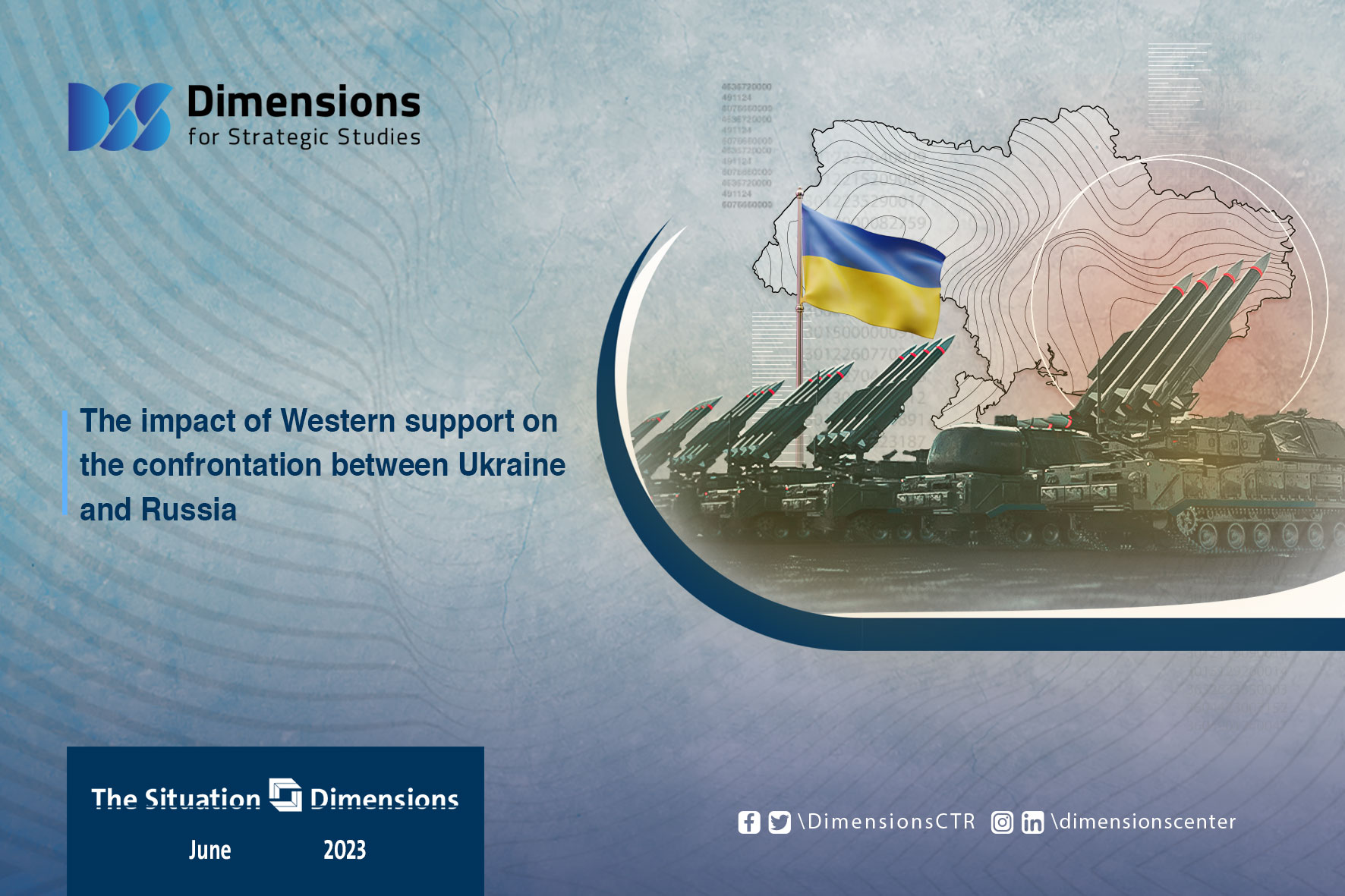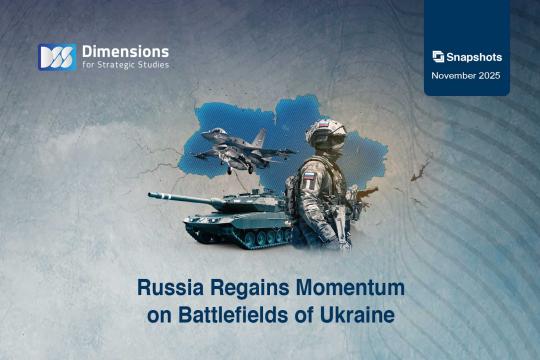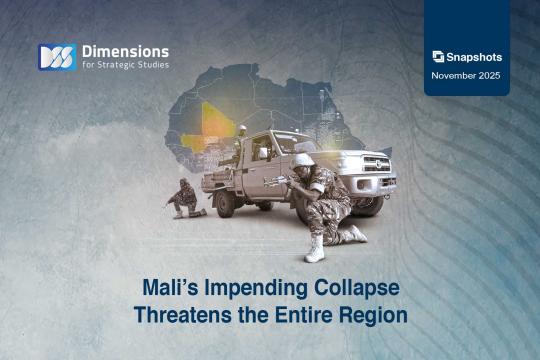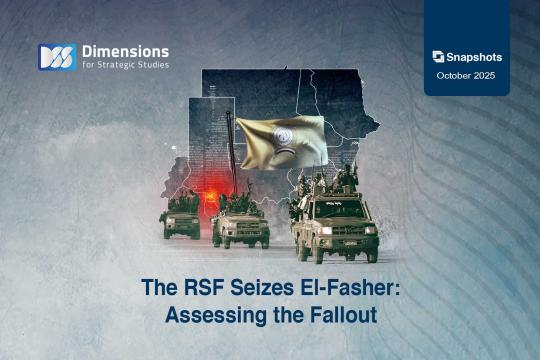
The impact of Western support on the confrontation between Ukraine and Russia
2023-06-192118 view
Since June 9, Ukraine has launched a large-scale counterattack to confront the Russian forces. The past few days have seen reciprocal announcements by the two sides of achievements on the ground in the battlefield fronts. Indeed, the theater of combat operations reflects a state of balance between the two forces, with a comparative advantage for the Ukrainian forces, especially after the counterattacks launched on the fronts of Bakhmut and Zaporizhia. Ukraine has a number of comparative advantages in the battle today, the most important of which are:
1) The Western arming of Ukraine with qualitative weapons, which contributed to field gains for the benefit of the Ukrainian army, for example, the missile system " HIMARS" made a big difference in the battle for the benefit of Ukrainian forces in their operations to liberate "Kherson and Kharkiv". Such a rocket system was essential in controlling them, and it contributed to a good extent to compensate for the inability of the Ukrainian army to use the air force, as it carries out precision laser-guided strikes.
Patriot Air Defence systems also reduced the ability of Russian aviation to cover the movement of ground forces, which hindered their ability to attack.
Advanced tanks acquired by the Ukrainian Army Leopard, Abrams and Challenger provided increased mobility for Ukrainian troops during the confrontations.
2) Western intelligence support: Western intelligence services provide information and logistical support to the Western side remotely, or through Western experts and advisers stationed in several locations in Ukraine, including a site opposite to the Zaporizhia nuclear plant, and another area opposite Crimea.
3) The limited Russian ammunition of long-range missiles that enable it to target specific locations, and the high cost of those missiles if produced. This prompted Russia to rely on cheap weapons such as Iranian drones to cause the largest amount of damage at the lowest costs but without high accuracy. The West, on the other hand, does not suffer from this problem, because the support is done collectively.
4) Russia's intelligence weakness: Moscow's “targets bank” appears to be outdated and lacks accurate update information. On many occasions, Russian forces have targeted long-abandoned military sites, or have been unable to monitor Ukrainian movements. On the other hand, the Ukrainian army suffers from several challenges, the most important of which is that Western armaments are based on the principle of gradualism in proportion to the severity of the Russian attack, which sometimes drives the Ukrainians to provoke Russia, with the aim of pushing it to use more force, so that Kiev gets more Western qualitative weapons, such as the bombing of the "Crimean Bridge", which is the largest Russian projects in the region, and was inaugurated by Putin himself. That was targeted by Ukrainian-made weapons. Indeed, Russia began after the bombing of Ukrainian vital sites such as power plants and other logistical sites, which prompted the West to provide Kiev with advanced air defense systems.
This weapons supply graduality has several goals; the most important of which is that the United States and Europe do not want to provoke Russia by launching attacks on it. The offensive situation will have serious political and military consequences, and the attack on Russian territory does not have an internal mandate in Western countries, and does not have a consensus among US allies. This graduality is also linked to the need for the Ukrainian military to train on advanced weapons systems and how to integrate them within the rest of the Ukrainian military system.
It seems that the United States of America and European countries are working to manage the battle by providing military and intelligence support to the Ukrainian army, according to a strategy based on containment and attrition of the Russian army attacks, preventing it from retaining large cities it previously controlled such as "Kherson and most of the Kharkiv regions", and then directing the counterattack towards the ports of the Sea of Azov "Mariudl-Perdznik", thus Ukraine gradually regains control of the entire southern region.





